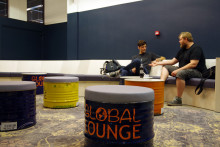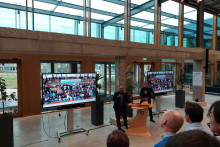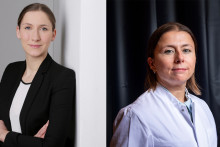Halman (faculty ET) made a quick scan of the UT. For that, he gathered input by speaking to 26 UT staff members. ‘The talks revealed that women suffer from cultural differences,’ he says. ‘That’s something that the confidential advisors mentioned. The cause lies in other norms and values, in some cultures men treat women differently. That is why I recommend that international students and staff are immediately shown the ropes with the Dutch manners.’
Crisis situations
Psychological problems are another phenomenon that some internationals bring with them. ‘There have been crisis situations on campus,’ Halman knows. ‘For example, there was a laboratory employee who expressed threats.’ Halman writes in his report that the UT must take into account that these kinds of situations will occur more often. ‘It is wise if the UT invests in one or two experts in this area,’ he says. ‘Because the emergency response teams (BHV, ed.) are not trained to deal with a crisis situation adequately. And resuscitation is of course different from wrestling someone to the ground if necessary.’
Halman points to the same causes that the Personal Circumstances Committee (CPO) also mentioned: students from outside Europe pay the high institutional rate and there is a lot of pressure to graduate. They also sometimes come into social isolation and are reluctant to ask for help. ‘The ITC faculty can serve as an example,’ says the researcher. ‘For example, they have a homologation year for foreign PhD students, during which they get acquainted with the Netherlands and acquire skills to successfully complete the PhD process.’
The intention is that this quick scan is a first step towards the organization of integrated management. Halman is also looking for external expertise for this. ‘For example at the TU Delft, where they have more experience with these issues.’







